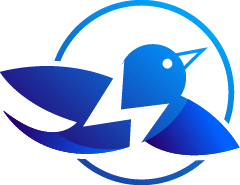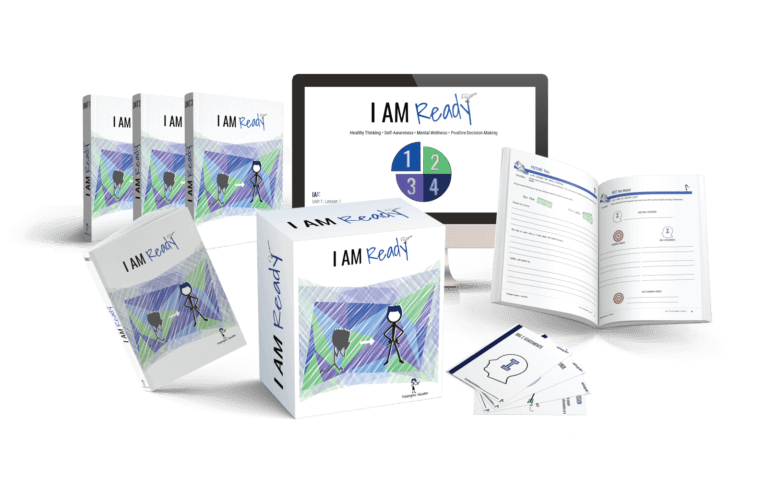Teach · Coach · Mentor

I AM READY
Curriculum
I AM READY

Unit 3: Are You Disciplined?
Guiding Questions:
What are my habits?
What are the internal routines, triggers, and rewards of my internal habits?
What is the Cognitive Triangle?
How do I use my ‘Big I’ and ‘little i’ scripts?
Unit Description:
We often think of a habit as a physical automatic behavior. In reality, a habit is a collection of the three internal events that interact together to produce a physical behavioral response.
In this unit, students use the Habit Formation model to explore how habits are formed and why the automation and repetitious nature of habits makes them so difficult to modify and change.
Learners explore the Habit Loop model and identify the relationship between routines, triggers, and rewards.
Learners identify positive and negative internal habits (thoughts, emotions, and reactive patterns) and identify changes that they want to make.
Lesson Overviews
Lesson One
Overview
Learners are introduced to the Habit Wheel and play a game that personifies the power, automaticity and influence that habits have over our lives. Learners review and create TRY Goals and discuss highs and lows with their Accountability Partners.
Critical Activities
- Take A Stand
- Accountability Partners
- Climb Our Mountain
- Habit Wheel
- Habit Formation
- Directions Game
- Transformation Circle
- Whip Around
Objectives
- Define habits
- Recognize habits and routines
- Understand how habits are formed
- Acknowledge challenges and successes
- Review and evaluate progress for personal records
- Set a TRY Goal
Learning Targets
- A habit is a routine of three internal events, not just a behavioral response.
- A habit is automatic and occurs without much thought.
- A habit is a deep pathway. Habits are hard to create and hard to destroy.
Lesson Two
Learners explore self-control challenges and establish their WHY for course participation. This Happened! and Tracking My Day Tools reflective tools are introduceOverview
Learners identify positive and negative habits. Learners explore the Habit Loop and describe the relationship between the habit loop and the automaticity of one’s internal thoughts, feelings and behavioral responses. Learners visit their reflection journals.
Critical Activities
- Words I Wish I Wrote
- Tie it Together
- Negative Habits Chart
- Habit Loop
- Cognitive Triangle
- This Happened!
- Tracking My Day
- A Picture Speaks a Thousand Words
Objectives
- Understand elements of a habit loop
- Understand the Cognitive Triangle
- Identify habits, rewards, and triggers
- Identify thoughts, feelings, and actions
Learning Targets
- Targets and Statements are reviewed in the Transformation Circles and Accountability Partners.
Lesson Three
Overview
Learners explore stress management through Today & Tomorrow Episode 3, complete the Empathy Map, and practice a guided meditation.
Critical Activities
- Tie it Together
- Tune in! Today & Tomorrow
- T&T Draw it!
- Circle of Self-Control
- This Happened!
- Tracking My Day
- Mirror Discussions: Say it Like it is -> Start a Conversation
- Back-to-Back
Objectives
- Identify thoughts, behaviors, and actions of others through story
- Identify I AM Ready tools for specific situations and scenarios
- Practice applying tools to characters in story
Learning Targets
- Targets and Statements are reviewed in the Transformation Circles and Accountability Partners.
Lesson Four
Overview
Learners take a ‘little i’ voice inventory and participate in a Transformation Circle group to discuss habits and making habit transformation.
Critical Activities
- Whip Around
- Transformation Circle
- Accountability Partners
- Create a TRY Goal
- A Picture Speaks a Thousand Words
Objectives
- Define ‘little i’
- Build empathy through guided visualization
- Compare and contrast ‘Big I’ and ‘little i’ scripts
Learning Targets
Targets and Statements are reviewed in the Transformation Circles and Accountability Partners.
CBT Terms and Tools
Terms:
- Habit Wheel
- Habit Formation
- Habit Loop
- Cognitive Triangle
Tools:
- This Happened! event journal
- Tracking My Day record
- Learning Targets
- Big I Statements
- ‘Above the Bar’ behaviors
- ‘Below the Bar’ behaviors
- Climb Our Mountain journal
- Negative Habits chart
- Empathy map
